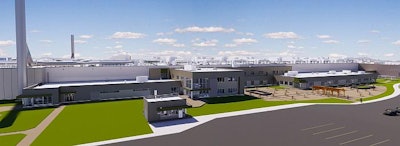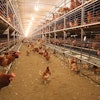
While Maple Leaf Foods is building a new value-added poultry processing plant in London, Ontario, it will also be closing three existing plants in the Canadian province.
Slated to close are plants in St. Marys, Tornoto and Brampton.
The company, in a press release, described the three facilities as “sub-scale and aging.”
“These plants have served us well, but they’re now 50 or 60 years old, and severely growth-constrained because of location, footprint or infrastructure, and nearing the end of their productive capacity,” Michael H. McCain, president and CEO of Maple Leaf Foods said in a recent conference call.
Production at the new plant in London is expecting to begin in the second quarter of Maple Leaf Foods’ 2021 fiscal year. The company's plant in St. Marys is expected to close by late 2021, while its plants in Toronto and Brampton are expected to close by mid-late 2022.
"We deeply regret the impact that these eventual closures will have on our people and communities," said McCain. "While these closures are several years away we are informing our people well in advance, allowing us to openly communicate and support them through this long-term transition. We will provide them with job opportunities at the new facility and other Maple Leaf plants, and services to help them eventually secure new employment."
According to McCain, the financial benefits of the strategy of consolidating the capacity of the three aging plants into a new plant is “capturing more margin, not maket share, with the gain split pretty equally between commercial and operational benefits.”
“The key value drivers are a higher value-added product mix, lower costs and increased capacity. Simply put, by seizing the opportunity to build a state-of-the art facility and consolidate three outdated processing plants into one, we can significantly enhance our ability to meet growing demand for higher margin products at lower cost, and with more capacity to increase production over time in line with demand,” McCain said.
The CEO also stated that Maple Leaf Foods will not have any disruption of sales, as a “sufficient transition period” has been put in place to mitigate that risk.


















